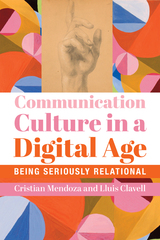635 have author last names that start with P have author last names that start with P

Evidence from Shang oracle bones to memorials submitted to Western Han emperors attests to a long-lasting debate in early China over the proper relationship between humans and gods. One pole of the debate saw the human and divine realms as separate and agonistic and encouraged divination to determine the will of the gods and sacrifices to appease and influence them. The opposite pole saw the two realms as related and claimed that humans could achieve divinity and thus control the cosmos. This wide-ranging book reconstructs this debate and places within their contemporary contexts the rival claims concerning the nature of the cosmos and the spirits, the proper demarcation between the human and the divine realms, and the types of power that humans and spirits can exercise.
It is often claimed that the worldview of early China was unproblematically monistic and that hence China had avoided the tensions between gods and humans found in the West. By treating the issues of cosmology, sacrifice, and self-divinization in a historical and comparative framework that attends to the contemporary significance of specific arguments, Michael J. Puett shows that the basic cosmological assumptions of ancient China were the subject of far more debate than is generally thought.

Carlo Rosselli (1899-1937) was one of the most charismatic and influential of European antifascist intellectuals. Born into a wealthy Jewish family, and abandoning a promising career as a professor of political economics, he devoted his considerable fortune and ultimately his life to the struggle against fascism. In 1925, he was instrumental in establishing the first underground antifascist newspaper. While imprisoned for his subversive political activities, he wrote his magnum opus, Liberal Socialism, arguing that socialism was the logical development of the principle of liberty. After a daring escape, he made his way to Paris and became the driving force behind a new political movement, "Justice and Liberty." Rosselli was among the first to arrive in Barcelona after the outbreak of the Spanish Civil War, in which he commanded an armed column of volunteers in defense of the Republic. When Italian fascists discovered Rosselli's plot to assassinate Mussolini, they declared him the regime's most dangerous enemy and had him murdered, along with his brother, noted historian Nello Rosselli, on a country road in Normandy.
In this work, the first biography of Rosselli in English, Stanislao Pugliese skillfully interweaves the strands of heresy, exile, and tragedy in Rosselli's life. The drama and drive of his narrative enhance the scholarly contribution that this work makes to modern Italian history and to the study of European antifascism.


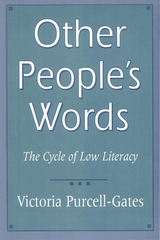
If asked to identify which children rank lowest in relation to national educational norms, have higher school dropout and absence rates, and more commonly experience learning problems, few of us would know the answer: white, urban Appalachian children. These are the children and grandchildren of Appalachian families who migrated to northern cities in the 1950s to look for work. They make up this largely “invisible” urban group, a minority that represents a significant portion of the urban poor. Literacy researchers have rarely studied urban Appalachians, yet, as Victoria Purcell-Gates demonstrates in Other People’s Words, their often severe literacy problems provide a unique perspective on literacy and the relationship between print and culture.
A compelling case study details the author’s work with one such family. The parents, who attended school off and on through the seventh grade, are unable to use public transportation, shop easily, or understand the homework their elementary-school-age son brings home because neither of them can read. But the family is not so much illiterate as low literate—the world they inhabit is an oral one, their heritage one where print had no inherent use and no inherent meaning. They have as much to learn about the culture of literacy as about written language itself.
Purcell-Gates shows how access to literacy has been blocked by a confluence of factors: negative cultural stereotypes, cultural and linguistic elitism, and pedagogical obtuseness. She calls for the recruitment and training of “proactive” teachers who can assess and encourage children’s progress and outlines specific intervention strategies.
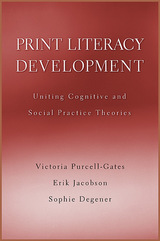
Is literacy a social and cultural practice, or a set of cognitive skills to be learned and applied? Literacy researchers, who have differed sharply on this question, will welcome this book, which is the first to address the critical divide. The authors lucidly explain how we develop our abilities to read and write and offer a unified theory of literacy development that places cognitive development within a sociocultural context of literacy practices. Drawing on research that reveals connections between literacy as it is practiced outside of school and as it is taught in school, the authors argue that students learn to read and write through the knowledge and skills that they bring with them to the classroom as well as from the ways that literacy is practiced in their own different social communities.
The authors argue that until literacy development can be understood in this broader way educators will never be able to develop truly effective literacy instruction for the broad range of sociocultural communities served by schools.

The beauty of the robin’s egg is not lost on the child who discovers the nest, nor on the collector of nature’s marvels. Such instances of wonder find fitting expression in the photographs of Rosamond Purcell, whose work captures the intricacy of nests and the aesthetic perfection of bird eggs. Mining the ornithological treasures of the Western Foundation of Vertebrate Zoology, Purcell produces pictures as lovely and various as the artifacts she photographs. The dusky blue egg of an emu becomes a planet. A woodpecker’s nest bears an uncanny resemblance to a wooden shoe. A resourceful rock dove weaves together scrap metal and spent fireworks. A dreamscape of dancing monkeys emerges from the calligraphic markings of a murre egg.
Alongside Purcell’s photographs, Linnea Hall and René Corado offer an engaging history of egg collecting, the provenance of the specimens in the photographs, and the biology, conservation, and ecology of the birds that produced them. They highlight the scientific value that eggs and nest hold for understanding and conserving birds in the wild, as well as the aesthetic charge they carry for us.
How has evolution shaped the egg or directed the design of the nest? How do the photographs convey such infinitesimal and yet momentous happenstance? The objects in Egg & Nest are specimens of natural history, and in Purcell’s renderings, they are also the most natural art.

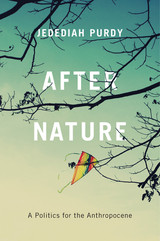
An Artforum Best Book of the Year
A Legal Theory Bookworm Book of the Year
Nature no longer exists apart from humanity. Henceforth, the world we will inhabit is the one we have made. Geologists have called this new planetary epoch the Anthropocene, the Age of Humans. The geological strata we are now creating record industrial emissions, industrial-scale crop pollens, and the disappearance of species driven to extinction. Climate change is planetary engineering without design. These facts of the Anthropocene are scientific, but its shape and meaning are questions for politics—a politics that does not yet exist. After Nature develops a politics for this post-natural world.
“After Nature argues that we will deserve the future only because it will be the one we made. We will live, or die, by our mistakes.”
—Christine Smallwood, Harper’s
“Dazzling…Purdy hopes that climate change might spur yet another change in how we think about the natural world, but he insists that such a shift will be inescapably political… For a relatively slim volume, this book distills an incredible amount of scholarship—about Americans’ changing attitudes toward the natural world, and about how those attitudes might change in the future.”
—Ross Andersen, The Atlantic
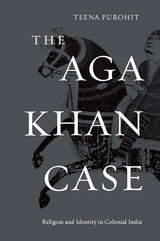
An overwhelmingly Arab-centric perspective dominates the West’s understanding of Islam and leads to a view of this religion as exclusively Middle Eastern and monolithic. Teena Purohit presses for a reorientation that would conceptualize Islam instead as a heterogeneous religion that has found a variety of expressions in local contexts throughout history. The story she tells of an Ismaili community in colonial India illustrates how much more complex Muslim identity is, and always has been, than the media would have us believe.
The Aga Khan Case focuses on a nineteenth-century court case in Bombay that influenced how religious identity was defined in India and subsequently the British Empire. The case arose when a group of Indians known as the Khojas refused to pay tithes to the Aga Khan, a Persian nobleman and hereditary spiritual leader of the Ismailis. The Khojas abided by both Hindu and Muslim customs and did not identify with a single religion prior to the court’s ruling in 1866, when the judge declared them to be converts to Ismaili Islam beholden to the Aga Khan.
In her analysis of the ginans, the religious texts of the Khojas that formed the basis of the judge’s decision, Purohit reveals that the religious practices they describe are not derivations of a Middle Eastern Islam but manifestations of a local vernacular one. Purohit suggests that only when we understand Islam as inseparable from the specific cultural milieus in which it flourishes do we fully grasp the meaning of this global religion.
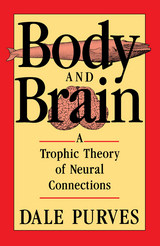
The major goal of developmental neurobiology is to understand how the nervous system is put together. A central theme that has emerged from research in this field over the last several decades is the crucial role of trophic interactions in neural assembly, and indeed throughout an animal's life. Trophic—which means nutritive—refers to long-term interdependencies between nerve cells and the cells they innervate.
The theory of trophic effects presented in this book offers an explanation of how the vertebrate nervous system is related to—and regulated by—the body it serves. The theory rationalizes the nervous system's accommodation, throughout life, to the changing size and form of the body it tenants, indicating the way connections between nerve cells change in response to stimuli as diverse as growth, injury, experience, and natural selection.
Dale Purves, a leading neurobiologist best known for his work on the formation and maintenance of synaptic connections, presents this theory within the historical setting of earlier ideas about neural organization—from Weiss's theory of functional reorganization to the chemoaffinity theory championed by Sperry. In addition to illuminating eighty years of work on trophic interactions, this book asks its own compelling questions: Are trophic interactions characteristic of all animals or only of those with complex nervous systems? Are trophic interactions related to learning? What does the trophic theory of neural connections imply about the currently fashionable view that the nervous system operates according to Darwinian principles?
Purves lays the theoretical foundation for practical exploration of trophic interactions as they apply to neural connections, a pursuit that will help us understand how our own nervous systems generate change. The ideas in this book not only enrich neurobiology but also convey the profound relevance of neuroscience to other fields of life science.
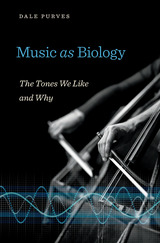
The universality of musical tones has long fascinated philosophers, scientists, musicians, and ordinary listeners. Why do human beings worldwide find some tone combinations consonant and others dissonant? Why do we make music using only a small number of scales out of the billions that are possible? Why do differently organized scales elicit different emotions? Why are there so few notes in scales? In Music as Biology, Dale Purves argues that biology offers answers to these and other questions on which conventional music theory is silent.
When people and animals vocalize, they generate tonal sounds—periodic pressure changes at the ear which, when combined, can be heard as melodies and harmonies. Human beings have evolved a sense of tonality, Purves explains, because of the behavioral advantages that arise from recognizing and attending to human voices. The result is subjective responses to tone combinations that are best understood in terms of their contribution to biological success over evolutionary and individual history. Purves summarizes evidence that the intervals defining Western and other scales are those with the greatest collective similarity to the human voice; that major and minor scales are heard as happy or sad because they mimic the subdued and excited speech of these emotional states; and that the character of a culture’s speech influences the tonal palette of its traditional music.
Rethinking music theory in biological terms offers a new approach to centuries-long debates about the organization and impact of music.


Although Charles Darwin never visited China, his ideas landed there with force. Darwinism was the first great Western theory to make an impact on the Chinese and, from 1895 until at least 1921, when Marxism gained a formal foothold, it was the dominant Western “ism” influencing Chinese politics and thought. The authority of Darwin, sometimes misinterpreted, influenced reformers and revolutionaries and paved the way for Chinese Marxism and the thought of Mao Tse-tung.
This study evaluates Darwin’s theory of evolution as a stimulus to Chinese political changes and philosophic challenge to traditional Chinese beliefs. James Pusey bases his analysis on a survey of journals issued from 1896 to 1910 and, after a break for revolutionary action, from 1915 to 1926, with emphasis on the era between the Sino–Japanese War and the Republican Revolution. The story of Darwinism in China involves, among others, the most famous figures of modern Chinese intellectual history.


Believing that “the complex and exciting organism which is a university is one of the noblest creations of the mind of man,” the President of Harvard develops his conviction in a series of pertinent and thoughtful essays. “True learning cannot go on in a vacuum,” he comments; “it is in constant interplay with society and at its center requires fundamental spiritual commitment or it is nothing.” Nathan Pusey explores the sensitive relationship between material and imaginative progress and emphasizes the need for values beyond the purely functional.
These essays have been thoughtfully selected from among the addresses delivered by President Pusey between 1953 and 1963. They include such subjects as “Freedom, Loyalty and the American University”; “Secularism and the Joy of Belief”; “Utility and the American University”; and “Science in the University.” In the course of the volume, Pusey touches on many of the fundamental problems that beset higher education in this country, but his interest is not restricted to “problems.” The essence of his purpose is to “persuade any of the unpersuaded and reinforce the conviction of the convinced concerning the worth of the university in today's world” and in developing his case he has achieved a remarkable concentration of lucidity and force.

World War II brought an end to many aspects of American college life, and the exciting years that followed were marked by activity and growth, and sometimes by dissension and disorder. Nevertheless, this postwar quarter century can be considered, according to one of those deeply involved, “the most creative period in the history of higher education in the United States.”
Nathan M. Pusey is well qualified to speak of this period since, as President of Lawrence College from 1944 to 1953 and of Harvard University from 1953 to 1971, he participated in many of the decisions that transformed American universities. In this book he deals with such crucial changes in university education as its increasing availability to a far greater percentage of an enlarged population; the broadening of undergraduate curricula; and the burgeoning of graduate degree programs and research activity. He also shows how universities supplanted colleges as trendsetting institutions and how as the United States had to assume increased international responsibilities, some of them became the world's strongest agents for intellectual advance. Throughout, his book is enriched and enlivened by his own participation and belief in the institutions he describes.
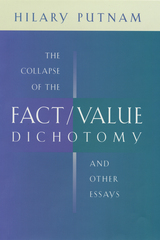
If philosophy has any business in the world, it is the clarification of our thinking and the clearing away of ideas that cloud the mind. In this book, one of the world's preeminent philosophers takes issue with an idea that has found an all-too-prominent place in popular culture and philosophical thought: the idea that while factual claims can be rationally established or refuted, claims about value are wholly subjective, not capable of being rationally argued for or against. Although it is on occasion important and useful to distinguish between factual claims and value judgments, the distinction becomes, Hilary Putnam argues, positively harmful when identified with a dichotomy between the objective and the purely "subjective."
Putnam explores the arguments that led so much of the analytic philosophy of language, metaphysics, and epistemology to become openly hostile to the idea that talk of value and human flourishing can be right or wrong, rational or irrational; and by which, following philosophy, social sciences such as economics have fallen victim to the bankrupt metaphysics of Logical Positivism. Tracing the problem back to Hume's conception of a "matter of fact" as well as to Kant's distinction between "analytic" and "synthetic" judgments, Putnam identifies a path forward in the work of Amartya Sen. Lively, concise, and wise, his book prepares the way for a renewed mutual fruition of philosophy and the social sciences.
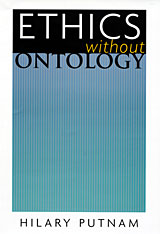
In this brief book one of the most distinguished living American philosophers takes up the question of whether ethical judgments can properly be considered objective—a question that has vexed philosophers over the past century. Looking at the efforts of philosophers from the Enlightenment through the twentieth century, Hilary Putnam traces the ways in which ethical problems arise in a historical context.
Putnam’s central concern is ontology—indeed, the very idea of ontology as the division of philosophy concerned with what (ultimately) exists. Reviewing what he deems the disastrous consequences of ontology’s influence on analytic philosophy—in particular, the contortions it imposes upon debates about the objective of ethical judgments—Putnam proposes abandoning the very idea of ontology. He argues persuasively that the attempt to provide an ontological explanation of the objectivity of either mathematics or ethics is, in fact, an attempt to provide justifications that are extraneous to mathematics and ethics—and is thus deeply misguided.
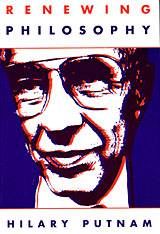
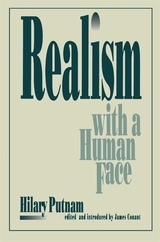
The time has come to reform philosophy, says Hilary Putnam, one of America’s great philosophers. He calls upon philosophers to attend to the gap between the present condition of their subject and the human aspirations that philosophy should and once did claim to represent. Putnam’s goal is to embed philosophy in social life.
The first part of this book is dedicated to metaphysical questions. Putnam rejects the contemporary metaphysics that insists on describing both the mind and the world from a God’s-eye view. In its place he argues for pluralism, for a philosophy that is not a closed systematic method but a human practice connected to real life. Philosophy has a task, to be sure, but it is not to provide an inventory of the basic furniture of the universe or to separate reality in itself from our own projections. Putnam makes it clear that science is not in the business of describing a ready-made world, and philosophy should not be in that business either.
The author moves on to show that the larger human context in which science matters is a world of values animated by ethics and aesthetic judgments. No adequate philosophy should try to explain away ethical facts. The dimension of history is added in the third part of the book. Here Putnam takes up a set of American philosophers, some firmly within and others outside the canon of analytic philosophy, such as William James and C. S. Peirce, and he explores the pragmatist contribution to philosophy from James to Quine and Goodman.
This book connects issues in metaphysics with cultural and literary issues and argues that the collapse of philosophical realism does not entail a fall into the abyss of relativism and postmodern skepticism. It is aimed primarily at philosophers but should appeal to a wide range of humanists and social scientists.
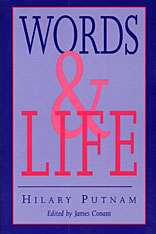
Hilary Putnam has been convinced for some time that the present situation in philosophy calls for revitalization and renewal; in this latest book he shows us what shape he would like that renewal to take. Words and Life offers a sweeping account of the sources of several of the central problems of philosophy, past and present, and of why some of those problems are not going to go away. As the titles of the first four parts in the volume—“The Return of Aristotle,” “The Legacy of Logical Positivism,” “The Inheritance of Pragmatism,” and “Essays after Wittgenstein”—suggest, many of the essays are concerned with tracing the recent, and the not so recent, history of these problems.
The goal is to bring out what is coercive and arbitrary about some of our present ways of posing the problems and what is of continuing interest in certain past approaches to them. Various supposedly timeless philosophical problems appear, on closer inspection, to change with altered historical circumstances, while there turns out to be much of permanent value in Aristotle’s, Peirce’s, Dewey’s, and Reichenbach’s work on some of the problems that continue to exercise us.
A unifying theme of the volume as a whole is that reductionism, scientism, and old-style disenchanted naturalism tend to be obstacles to philosophical progress. The titles of the final three parts of the volume—“Truth and Reference,” “Mind and Language,” and “The Diversity of the Sciences”—indicate that the sweep of the problems considered here comprehends all the fundamental areas of contemporary analytic philosophy. Rich in detail, the book is also grand in scope, allowing us to trace the ongoing intellectual evolution of one of the most significant philosophers of the century.
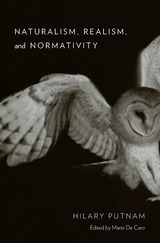
Hilary Putnam’s ever-evolving philosophical oeuvre has been called “the history of recent philosophy in outline”—an intellectual achievement, nearly seventy years in the making, that has shaped disciplinary fields from epistemology to ethics, metaphysics to the philosophy of physics, the philosophy of mathematics to the philosophy of mind. Naturalism, Realism, and Normativity offers new avenues into the thought of one of the most influential minds in contemporary analytic philosophy.
The essays collected here cover a range of interconnected topics including naturalism, commonsense and scientific realism, ethics, perception, language and linguistics, and skepticism. Aptly illustrating Putnam’s willingness to revisit and revise past arguments, they contain important new insights and freshly illuminate formulations that will be familiar to students of his work: his rejection of the idea that an absolute conception of the world is obtainable; his criticism of a nihilistic view of ethics that claims to be scientifically based; his pathbreaking distinction between sensations and apperceptions; and his use of externalist semantics to invalidate certain forms of skepticism. Above all, Naturalism, Realism, and Normativity reflects Putnam’s thinking on how to articulate a theory of naturalism which acknowledges that normative phenomena form an ineluctable part of human experience, thereby reconciling scientific and humanistic views of the world that have long appeared incompatible.
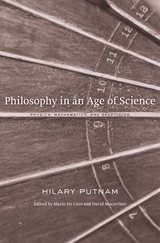
Hilary Putnam’s unceasing self-criticism has led to the frequent changes of mind he is famous for, but his thinking is also marked by considerable continuity. A simultaneous interest in science and ethics—unusual in the current climate of contention—has long characterized his thought. In Philosophy in an Age of Science, Putnam collects his papers for publication—his first volume in almost two decades.
Mario De Caro and David Macarthur’s introduction identifies central themes to help the reader negotiate between Putnam past and Putnam present: his critique of logical positivism; his enduring aspiration to be realist about rational normativity; his anti-essentialism about a range of central philosophical notions; his reconciliation of the scientific worldview and the humanistic tradition; and his movement from reductive scientific naturalism to liberal naturalism. Putnam returns here to some of his first enthusiasms in philosophy, such as logic, mathematics, and quantum mechanics. The reader is given a glimpse, too, of ideas currently in development on the subject of perception.
Putnam’s work, contributing to a broad range of philosophical inquiry, has been said to represent a “history of recent philosophy in outline.” Here it also delineates a possible future.
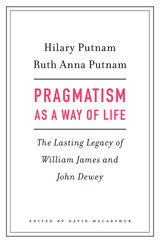
Throughout his diverse and highly influential career, Hilary Putnam was famous for changing his mind. As a pragmatist he treated philosophical “positions” as experiments in deliberate living. His aim was not to fix on one position but to attempt to do justice to the depth and complexity of reality. In this new collection, he and Ruth Anna Putnam argue that key elements of the classical pragmatism of William James and John Dewey provide a framework for the most progressive and forward-looking forms of philosophy in contemporary thought. The Putnams present a compelling defense of the radical originality of the philosophical ideas of James and Dewey and their usefulness in confronting the urgent social, political, and moral problems of the twenty-first century.
Pragmatism as a Way of Life brings together almost all of the Putnams’ pragmatist writings—essays they wrote as individuals and as coauthors. The pragmatism they endorse, though respectful of the sciences, is an open experience-based philosophy of our everyday lives that trenchantly criticizes the fact/value dualism running through contemporary culture. Hilary Putnam argues that all facts are dependent on cognitive values, while Ruth Anna Putnam turns the problem around, illuminating the factual basis of moral principles. Together, they offer a shared vision which, in Hilary’s words, “could serve as a manifesto for what the two of us would like philosophy to look like in the twenty-first century and beyond.”

For nearly a decade the leaders of the seven major industrial countries—the United States, Japan, Germany, France, Britain, Italy, and Canada—have met annually to discuss international economic and political issues. Regular summitry of this sort is virtually unprecedented in modern diplomacy. Proponents see the Western summits as providing collective leadership that is vital in a turbulent world, while critics dismiss summitry as distracting and even damaging to political and economic stability.
Hanging Together charts the modern dilemma between economic interdependence and national sovereignty. It assesses the history, decisions, successes, and failures of the seven-power summits from Rambouillet in 1975 to the 1983 meeting at Williamsburg, and looks forward to the 1984 summit in London. The authors show how the growing importance of international commerce and finance has caused national and international politics to become entangled, and how national borders have become more permeable. Born in an era of waning American hegemony, the summits reveal the tension between American leadership and collective Western management of the world economy. The authors also trace the struggles of heads of state to balance the conflicting imperatives of personal authority and bureaucratic expertise. Because summits involve the power and prestige of each country's highest authorities, summitry reveals in concentrated form how these conflicts are expressed and managed.
As a blend of contemporary history and political economy, Hanging Together demonstrates that summits are not isolated annual encounters, but part of a continuous process of international and domestic negotiation about the most important and controversial issues facing all governments today.
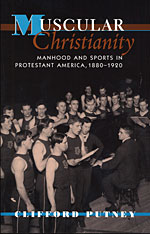

Lucian Pye, one of the most knowledgeable observers of China, unfolds in this book a deep psychological analysis of Chinese political culture. The dynamics of the Cultural Revolution, the behavior of the Red Guards, and the compulsions of Mao Tse-tung are among the important symptoms examined. But Pye goes behind large events, exploring the more enduring aspects of Chinese culture and the stable elements of the national psychology as they have been manifested in traditional, Republican, and Communist periods. He also scans several possible paths of future development. The emphasis is on the roles long played by authority, order, hierarchy, and emotional quietism in Chinese political culture as shaped by the Confucian tradition and the institution of filial piety, and the resulting confusions brought about by the displacements of these traditions in the face of political change and modernization.
In this new edition Pye adds a chapter on the basic tension between consensus and conflict in the operation of Chinese politics, illustrating the "spirit" in action, and another discussing the great gap that persists between the worlds of the political leadership and of society at large in post-Tiananmen China.
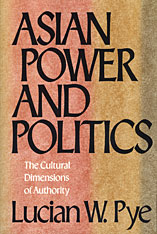
In a major new book, Lucian W. Pye reconceptualizes Asian political development as a product of cultural attitudes about power and authority. He contrasts the great traditions of Confucian East Asia with the Southeast Asian cultures and the South Asian traditions of Hinduism and Islam, and explores the national differences within these larger civilizations.
Breaking with modern political theory, Pye believes that power differs profoundly from one culture to another. In Asia the masses of the people are group-oriented and respectful of authority, while their leaders are more concerned with dignity and upholding collective pride than with problem-solving. As culture decides the course of political development, Pye shows how Asian societies, confronted with the task of setting up modern nation-states, respond by fashioning paternalistic forms of power that satisfy their deep psychological craving for security. This new paternalism may appear essentially authoritarian to Western eyes, but Pye maintains that it is a valid response to the people’s needs and will ensure community solidarity and strong group loyalties. He predicts that we are certain to see emerging from Asia’s accelerating transformation some new version of modern society that may avoid many of the forms of tension common to Western civilization but may also produce a whole new set of problems.
This book revitalizes Asian political studies on a plane that comprehends the large differences between Asia and the West and at the same time is sensitive to the subtle variations among the many Asian cultures. Its comparative perspective will provide indispensable insights to anyone who wishes to think more deeply about the modern Asian states.
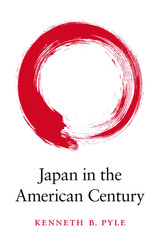
No nation was more deeply affected by America’s rise to world power than Japan. President Franklin Roosevelt’s uncompromising policy of unconditional surrender led to the catastrophic finale of the Asia-Pacific War and the most intrusive international reconstruction of another nation in modern history. Japan in the American Century examines how Japan, with its deeply conservative heritage, responded to the imposition of a new liberal order.
The price Japan paid to end the occupation was a cold war alliance with the United States that ensured America’s dominance in the region. Still traumatized by its wartime experience, Japan developed a grand strategy of dependence on U.S. security guarantees so that the nation could concentrate on economic growth. Yet from the start, despite American expectations, Japan reworked the American reforms to fit its own circumstances and cultural preferences, fashioning distinctively Japanese variations on capitalism, democracy, and social institutions.
Today, with the postwar world order in retreat, Japan is undergoing a sea change in its foreign policy, returning to an activist, independent role in global politics not seen since 1945. Distilling a lifetime of work on Japan and the United States, Kenneth Pyle offers a thoughtful history of the two nations’ relationship at a time when the character of that alliance is changing. Japan has begun to pull free from the constraints established after World War II, with repercussions for its relations with the United States and its role in Asian geopolitics.
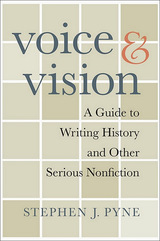
It has become commonplace these days to speak of “unpacking” texts. Voice and Vision is a book about packing that prose in the first place. While history is scholarship, it is also art—that is, literature. And while it has no need to emulate fiction, slump into memoir, or become self-referential text, its composition does need to be conscious and informed.
Voice and Vision is for those who wish to understand the ways in which literary considerations can enhance nonfiction writing. At issue is not whether writing is scholarly or popular, narrative or analytical, but whether it is good. Fiction has guidebooks galore; journalism has shelves stocked with manuals; certain hybrids such as creative nonfiction and the new journalism have evolved standards, esthetics, and justifications for how to transfer the dominant modes of fiction to topics in nonfiction. But history and other serious or scholarly nonfiction have nothing comparable.
Now this curious omission is addressed by Stephen Pyne as he analyzes and teaches the craft that undergirds whole realms of nonfiction and book-based academic disciplines. With eminent good sense concerning the unique problems posed by research-based writing and with a wealth of examples from accomplished writers, Pyne, an experienced and skilled writer himself, explores the many ways to understand what makes good nonfiction, and explains how to achieve it. His counsel and guidance will be invaluable to experts as well as novices in the art of writing serious and scholarly nonfiction.
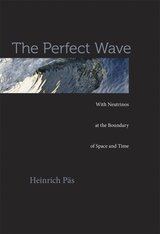
Almost weightless and able to pass through the densest materials with ease, neutrinos seem to defy the laws of nature. But these mysterious particles may hold the key to our deepest questions about the universe, says physicist Heinrich Päs. In The Perfect Wave, Päs serves as our fluent, deeply knowledgeable guide to a particle world that tests the boundaries of space, time, and human knowledge.
The existence of the neutrino was first proposed in 1930, but decades passed before one was detected. Päs animates the philosophical and scientific developments that led to and have followed from this seminal discovery, ranging from familiar topics of relativity and quantum mechanics to more speculative theories about dark energy and supersymmetry. Many cutting-edge topics in neutrino research--conjectures about the origin of matter, extra-dimensional spacetime, and the possibility of time travel--remain unproven. But Päs describes the ambitious projects under way that may confirm them, including accelerator experiments at CERN and Fermilab, huge subterranean telescopes designed to detect high-energy neutrino radiation, and the Planck space observatory scheduled to investigate the role of neutrinos in cosmic evolution.
As Päs's history of the neutrino illustrates, what is now established fact often sounded wildly implausible and unnatural when first proposed. The radical side of physics is both an exciting and an essential part of scientific progress, and The Perfect Wave renders it accessible to the interested reader.

This book explores the trials of Spanish democracy from the death of Franco to the present. But the heart of the story is the generation that came of age in the 1960s, assumed political power, and formed the first Socialist government in 1982 with Felipe González as Prime Minister, which was returned to power in four consecutive elections. Starting in 1993, however, the government came under siege. High officials were accused of authorizing the assassination of as many as twenty-eight Basque nationalists suspected of terrorism over the years, and of covering up these crimes. This scandal, along with other disclosures of corruption and serious law-breaking, shook the country's confidence in its legal and political institutions and in its ability to hold its leaders to the rule of law.
The author probes for the roots of these events in the character of the generation that assumed power and in the immature nature of the civil society it inherited. Facing unusually high unemployment, internal economic and social pressures, the stringent requirements for joining the European Union, and the demands of Catalan and Basque nationalists, the government lost its way and was eventually voted out of office.
Using Spain as the example, the book examines issues of governance, social change, and internal nationalist movements as they relate to the civil society and the wider polity everywhere.
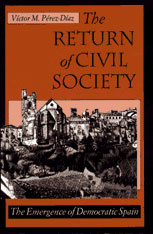

READERS
Browse our collection.
PUBLISHERS
See BiblioVault's publisher services.
STUDENT SERVICES
Files for college accessibility offices.
UChicago Accessibility Resources
home | accessibility | search | about | contact us
BiblioVault ® 2001 - 2024
The University of Chicago Press






